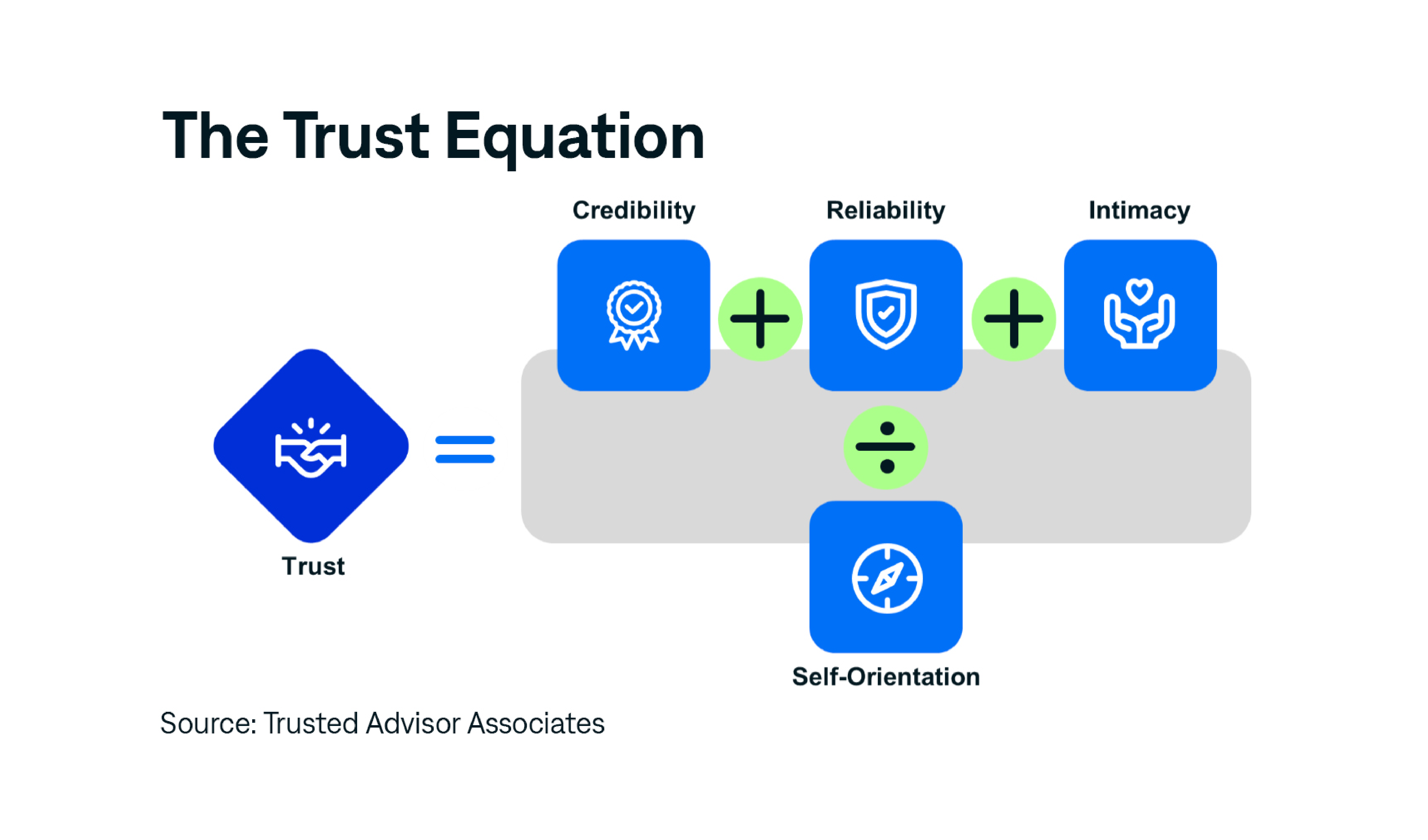
Amplity Facilitator
No image found.

Let’s say someone on your team makes a mistake—misses a regulatory deadline or enters a critical piece of clinical trial data incorrectly. These are high-stakes errors with real consequences.
Does your teammate come to you right away so you can fix it together? Or do they try to fix it on their own? That moment says a lot—about them, but also about you and the level of trust you’ve built.
In our industry, trust is everything. Patients need to believe in their doctors or risk poor medication adherence, missed vaccinations, and lower quality of life. Healthcare providers must trust the science underlying medications. And pharma teams must trust each other to get things right the first time, every time.
But pharma organizations move fast. Regulatory shifts, agile strategy planning, reorganizations, and onboarding new teammates are just part of the business. Under pressure to deliver, pharma teams often don’t have time to build the trusted long-term relationships that once formed the foundation for success.
Fortunately, trust doesn’t hinge on grand gestures. Rather, it’s built through small, consistent behaviors: being clear, following through, listening well, having deeper conversations, and speaking honestly. These everyday actions can quickly create trust—especially when everything else is shifting.
To build trust intentionally, leaders need a practical way to understand where they stand—and where to focus.
One useful tool is The Trust Equation developed by David Maister, Charles Green, and Robert Galford. It helps us calculate our interpersonal trustworthiness.
Each element—credibility, reliability, intimacy, and self-orientation—influences how others perceive your trustworthiness. Think of someone you work with regularly. Then, rate yourself on a scale of 1 to 10 in each of the following areas:
Add up your scores for the first 3, then divide by your self-orientation score (higher is better). That’s your Trust Quotient (TQ)—like IQ or EQ, but for how that person experiences you.
Want deeper insight? Ask someone you trust to rate you, too. Try questions like:
“Do you think I’m reliable?” or “Do you feel safe sharing important things with me?”
For perspective: nurses consistently rank among the most trusted professionals, according to the Ipsos Global Trustworthiness Monitor. Why? Because they tend to score low in self-orientation and high in intimacy; they connect with people in vulnerable moments.
If you’ve scored yourself honestly in the exercise above, you’ve likely identified at least one area where you can increase your trustworthiness with the person you reflected on.

One way to strengthen trust is through purposeful conversation.
Robert Dilts, a pioneer in neuro-linguistic programming, developed The Pyramid of Logical Levels to diagram where human behavior can be changed.
 It can also guide us to go deeper in conversation and connect more meaningfully. As you move through the levels, you build intimacy, a foundation for trust.
It can also guide us to go deeper in conversation and connect more meaningfully. As you move through the levels, you build intimacy, a foundation for trust.
Purposeful conversations help people feel seen, heard, and understood.
Try it in a low-stakes setting first—with a friend or family member. Notice how quickly the connection grows when you move from what they do to why they care.
Trust isn’t magic. It’s measurable and can be purposefully improved.
What’s more, trust is good for business. In The Neuroscience of Trust, Paul Zak writes, “Employees in high-trust organizations are more productive, have more energy at work, collaborate better with their colleagues, and stay with their employers longer than people working at low-trust companies.”
And when trust grows, performance follows. Indeed, building trust in pharma teams is the ultimate differentiator that drives success.
***********
Do you want your team to perform better, move quickly, and excel at problem-solving? Amplity Learn has transformed the lives of hundreds of pharma industry team members through our engaging, interactive workshops on building trust. Don’t just talk about it—experience trust with your team.
About The Author: Charlie Welch has for the past 10 years facilitated and coached academics and pharma and medical affairs professionals, both in the capability development space and on leadership and development programs. She particularly enjoys helping Amplity clients develop trust in their teams, build their ability to truly listen well, bring their stories to life, and present them with confidence.